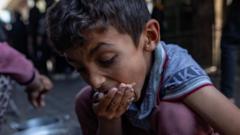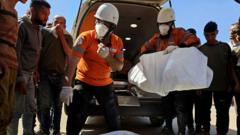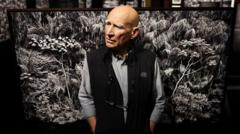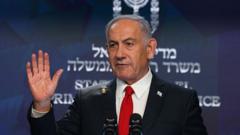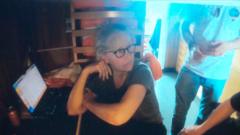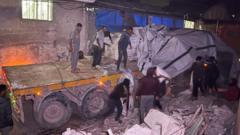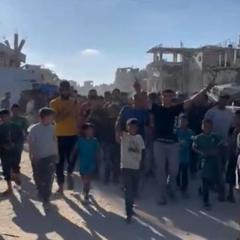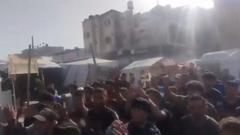The BBC's airing of "Gaza: How To Survive A War Zone," narrated by a Hamas official's son, prompted outcry from the culture secretary and industry figures over the broadcaster's diligence in vetting contributors, leading to calls for an independent investigation.
BBC's Gaza Documentary Sparks Controversy Over Hamas Connection
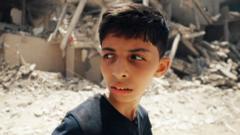
BBC's Gaza Documentary Sparks Controversy Over Hamas Connection
The BBC faces scrutiny after a Gaza documentary featured the son of a Hamas official, raising questions about editorial standards and transparency.
In a recent controversy, the BBC is under fire for its documentary "Gaza: How To Survive A War Zone," which featured the voice of Abdullah Al-Yazouri, a 13-year-old boy who is the son of a deputy minister in the Hamas government. Culture Secretary Lisa Nandy expressed her intention to address the issue with BBC officials, emphasizing the need for clarity on how individuals featured in the program were sourced.
Criticism has mounted regarding the lack of transparency concerning Al-Yazouri's family ties, as the BBC reported it had not been notified about this connection prior to broadcasting. The BBC issued an apology for not including this information and has added a disclaimer to the start of the documentary on its iPlayer platform, stating, "The narrator of this film is 13-year-old Abdullah. His father has worked as a deputy agriculture minister for the Hamas-run government in Gaza." The BBC maintained that the production team retained full editorial control.
Prominent industry figures, including actress Tracy-Ann Oberman and former BBC executive Danny Cohen, have called for immediate action from the BBC, including the postponement of the documentary's repeats and the removal of its clips from digital platforms until an independent investigation is conducted. They questioned both the editorial standards upheld during the production and the BBC's adherence to the Ofcom Broadcasting Code.
The broadcaster defended the documentary, asserting its commitment to transparency and insisting that it had undergone typical compliance procedures in its production. BBC representatives described the film as a powerful depiction of the impacts of the Gaza conflict from a child's perspective, deeming it essential to convey the experiences of those affected by war.
In her commentary, Nandy noted the complexity of the situation, indicating that the BBC's efforts to navigate issues surrounding bias and representation in its reporting are acknowledged. The documentary, produced by Hoyo Films, continues to air on BBC platforms amid ongoing debates about journalistic integrity and accountability.
Criticism has mounted regarding the lack of transparency concerning Al-Yazouri's family ties, as the BBC reported it had not been notified about this connection prior to broadcasting. The BBC issued an apology for not including this information and has added a disclaimer to the start of the documentary on its iPlayer platform, stating, "The narrator of this film is 13-year-old Abdullah. His father has worked as a deputy agriculture minister for the Hamas-run government in Gaza." The BBC maintained that the production team retained full editorial control.
Prominent industry figures, including actress Tracy-Ann Oberman and former BBC executive Danny Cohen, have called for immediate action from the BBC, including the postponement of the documentary's repeats and the removal of its clips from digital platforms until an independent investigation is conducted. They questioned both the editorial standards upheld during the production and the BBC's adherence to the Ofcom Broadcasting Code.
The broadcaster defended the documentary, asserting its commitment to transparency and insisting that it had undergone typical compliance procedures in its production. BBC representatives described the film as a powerful depiction of the impacts of the Gaza conflict from a child's perspective, deeming it essential to convey the experiences of those affected by war.
In her commentary, Nandy noted the complexity of the situation, indicating that the BBC's efforts to navigate issues surrounding bias and representation in its reporting are acknowledged. The documentary, produced by Hoyo Films, continues to air on BBC platforms amid ongoing debates about journalistic integrity and accountability.


